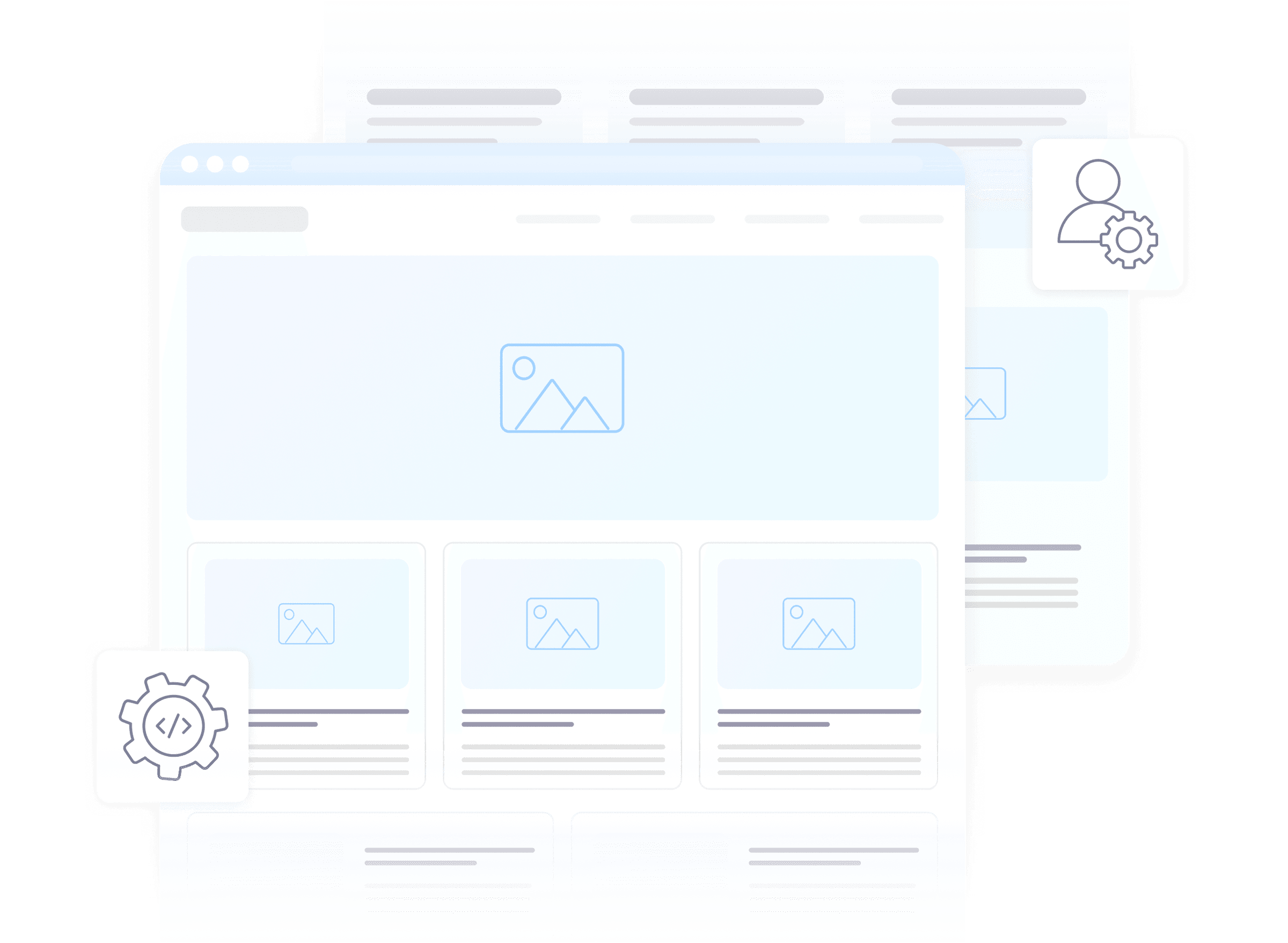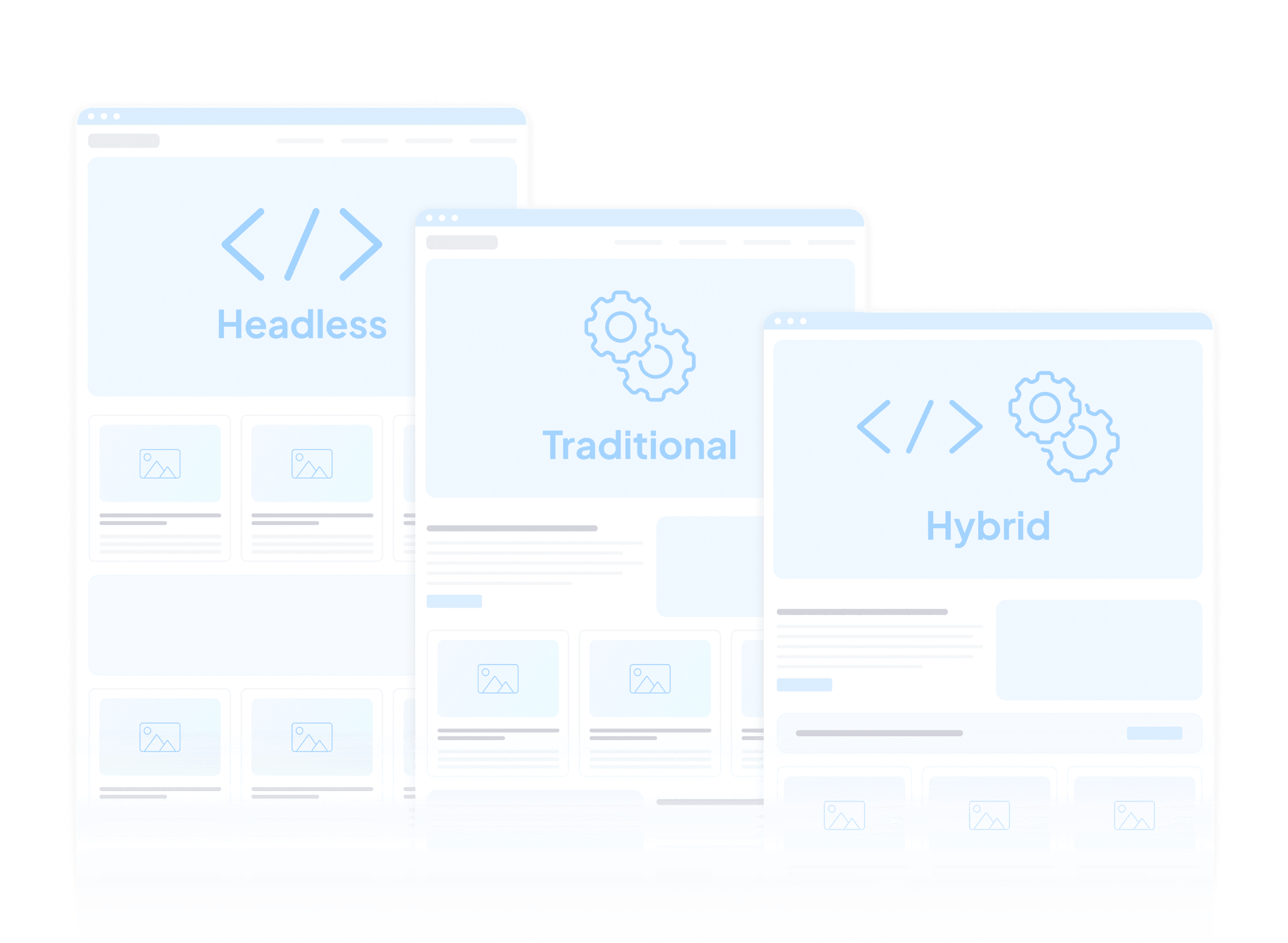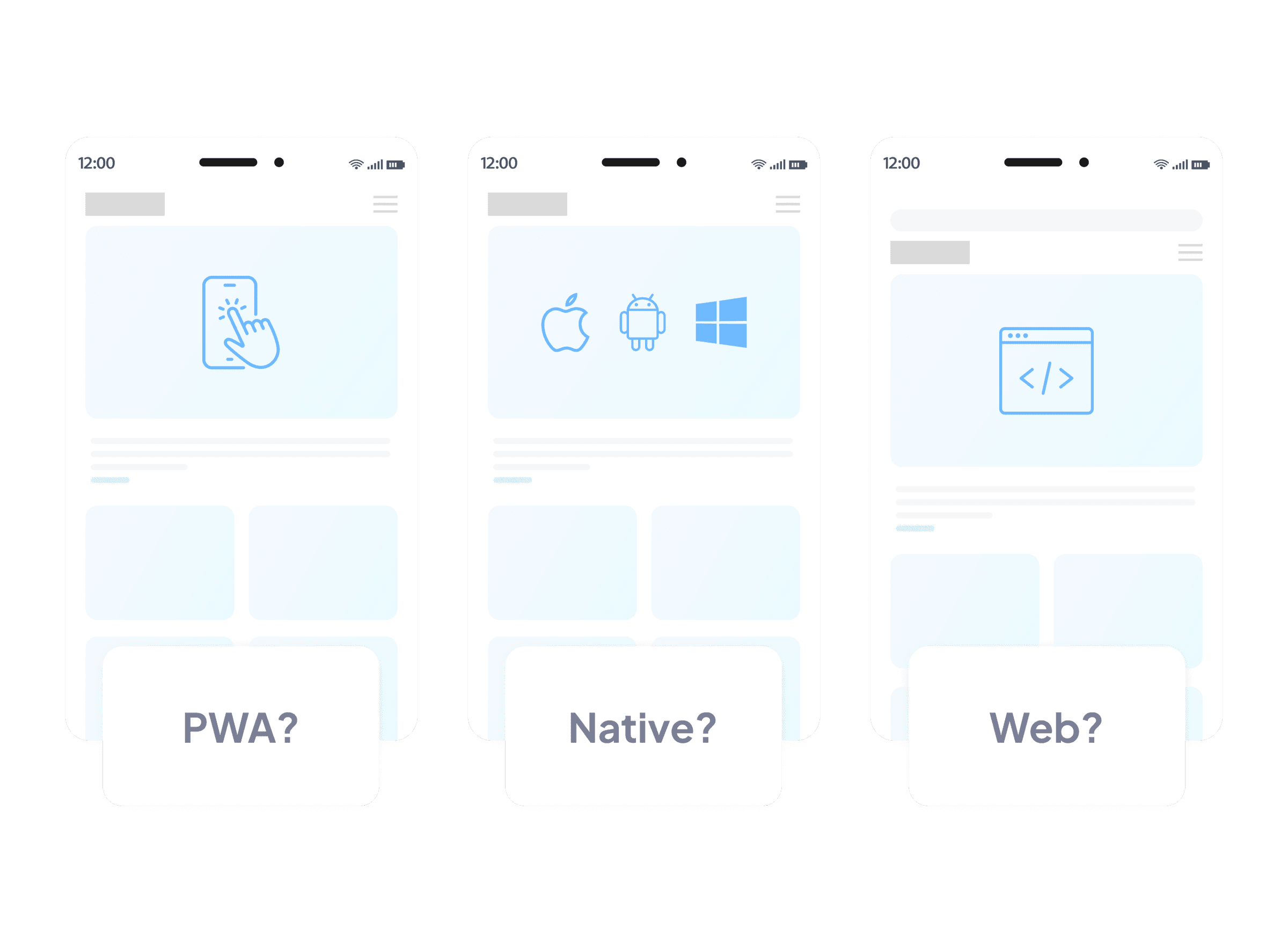Choosing a new CMS is a big commitment, whether you're looking for a simple solution to keep your website content up to date, or a full blown system to manage company processes and functions.
But very few people really take a good look at the full range of CMS solutions available, or consider the significant facts that could help guide them to the best choice for them.
In this guide we're going to take you through some key content management system statistics. Including the most popular types of CMS, rising trends, and the problems and pitfalls people encounter when trying to choose the best solution. We'll talk about:
- General content management statistics
- CMS usage statistics
- CMS issues and pain points
- The rise of headless CMS
- How businesses choose a new CMS
- How to choose the right CMS for you
General Content Management Statistics
Before we start digging into the key statistics about CMS usage and the changes in the industry, let's talk about the general stats that you'll need to know.
68.7% of all websites use some kind of CMS
We3Techs
In the early days of the internet, almost every website was hand-coded, but as technology has got more sophisticated, it's become easier for people to create and integrate content management systems into their websites.
Since 2011, the number of hand coded websites has dropped from 76% of all websites, to just over 30%
WP Beginner
This still means that nearly one in 3 websites doesn't have a CMS, but this proportion is shrinking every year.
There are around 922 different types of CMS
Themeisle
And this is just an estimate! The sheer number of CMS options out there might be surprising considering the dominance of a small number of providers, but there are hundreds of different options, from specialised CMSs developed for specific industries and functions, to bespoke CMSs created by agencies for their entire client base.
68% of people have changed CMS in the last 3 years, with 57% expecting to change in the near future.
Storyblok
In their State of CMS 2024, Storyblok's research showed that over 2 thirds of respondents had recently changed CMS provider, with just under 2 thirds looking to change CMS in the near future.
Over 8 in 10 respondents feel their current CMS is holding them back
Hygraph
This willingness to change CMS is reinforced by research from Hygraph, who reported that 80% of people felt that their CMS was restricting their opportunities.
CMS Usage Statistics
With nearly a thousand different types of CMS available, which are the most popular, and why?
Top 4 CMS Providers
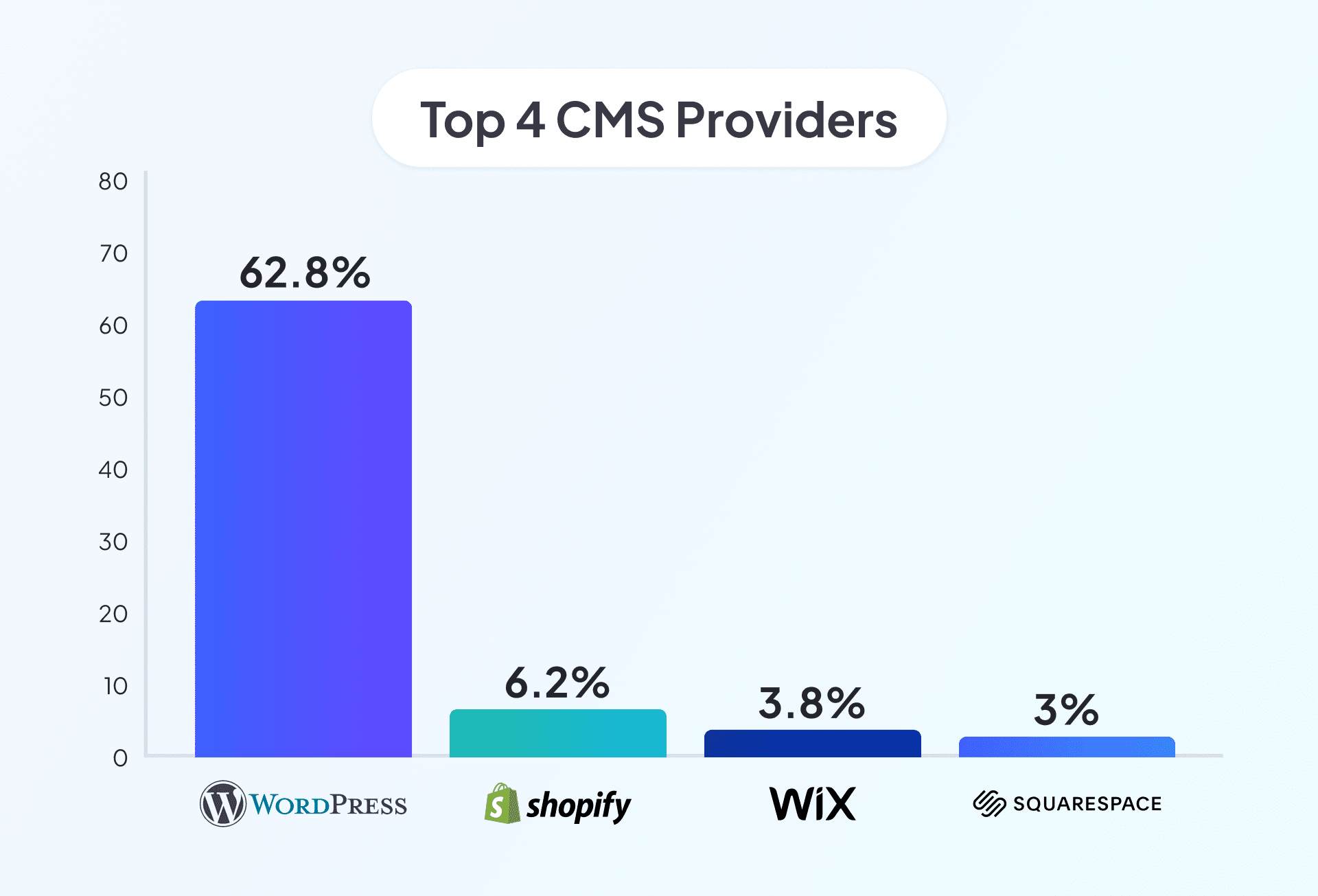
Wordpress is used by 43.4% of all websites (including those with no CMS at all)
We3Techs
Wordpress is by far the most popular CMS platform, dwarfing all other options, with "No CMS" being the next most popular.
There are more than 82 million Wordpress sites in the world and it has grown its market share from 58.8% in 2016 to 63.7% in 2023
WP Engine, Themeisle
Wordpress has achieved huge dominance in the global CMS market, and has grown that dominance over time. One of the key reasons Wordpress has continued to be successful is that it has developed its product to be appealing to a very broad range of users.
It can be simplistic enough for a non-technical website builder to create a website from a theme, but it can also be sophisticated enough to support bespoke designs and functions, making it more appealing to agencies and developers.
Wix is the fastest growing CMS, going from 0.3% in 2016 to 3.6% in 2023
Themeisle
Interestingly, when you look at the percentage increase of market share, the fastest growing CMS provider is Wix. This is likely due to the number of people who want to make use of a quick, easy and cheap site builder CMS.
26.26% of the top 100k websites (based on traffic) use Wordpress
WP Beginner
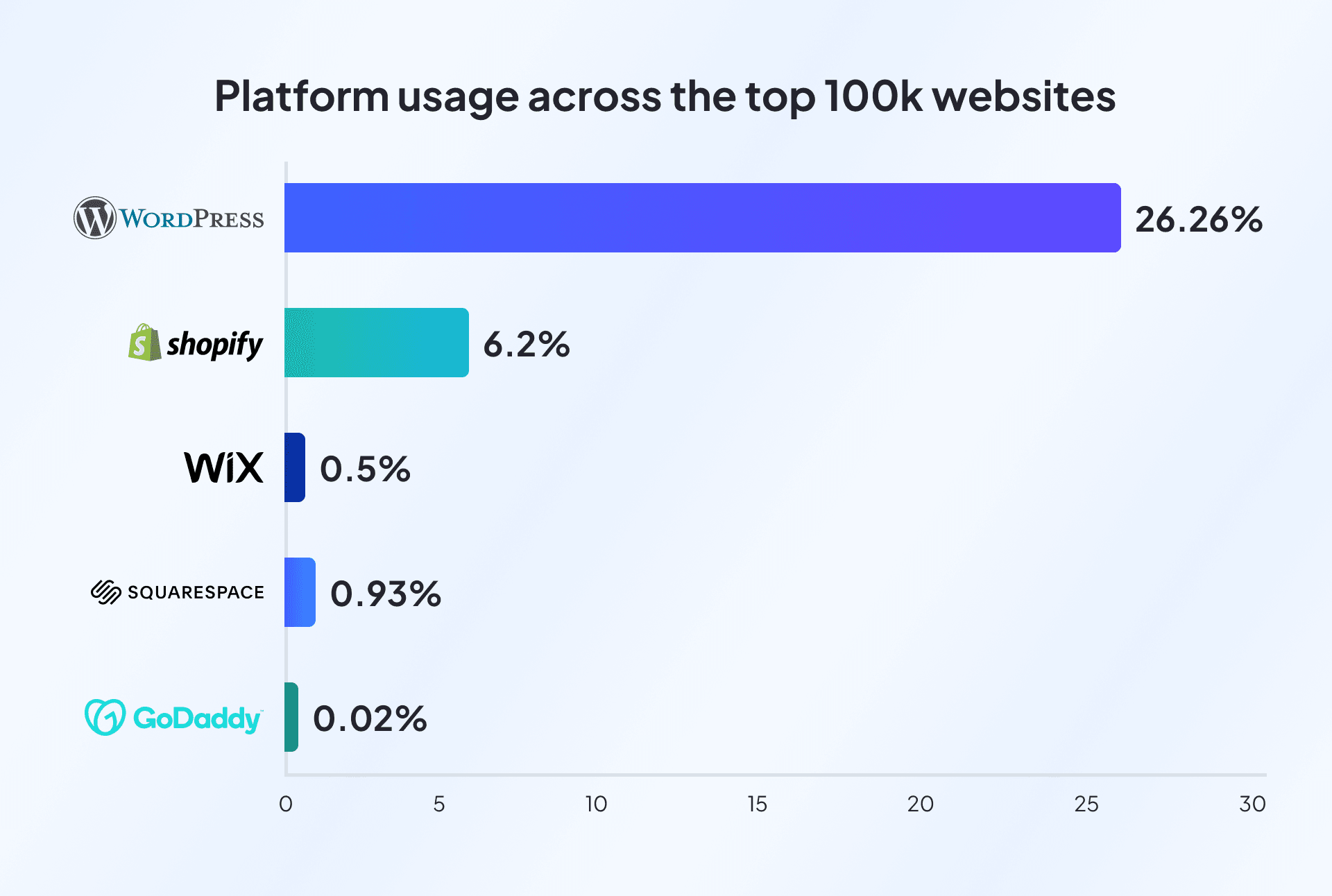
There is a steep drop in Wordpress market share when you look at the top 100k websites, with far, far fewer of them relying on a WP platform. This trend continues with all the major web builder platforms (Wix, Squarespace etc.).
This indicates that the more sophisticated the website, the more likely they will be looking for an alternative CMS solution, rather than a web builder option.
In the last 10 years the market share of Drupal and Joomla has dropped from 17% to under 5%
Mobiloud
The biggest drops in CMS market share have come from Drupal and Joomla. These used to be popular CMSs, particularly with web developers, but have fallen out of favour as the market has changed.
47% of organisations use 2 or 3 CMSs
Storyblok
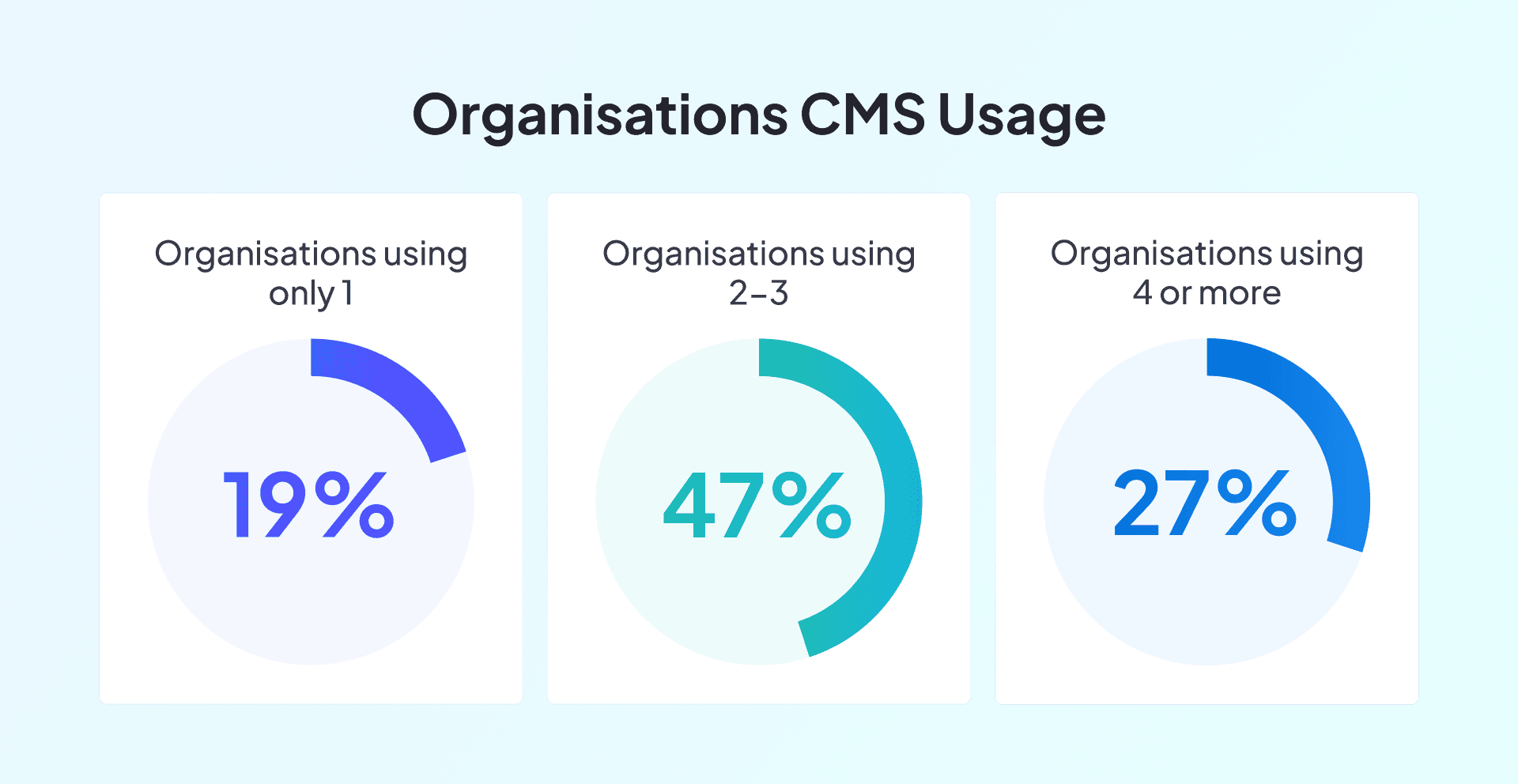
A surprising number of organisations end up using multiple CMSs, this commonly occurs when you're trying to publish content across different channels, or if your current CMS can't handle the functionality you require by itself.
This can lead to situations where your website content is managed by your website CMS, but vacancies are handled by a different system and course booking by something else. This gives you multiple systems to manage, update and (usually) pay for too.
So, what has changed in the CMS market?
From the data, it seems that the biggest changes in the CMS market have been the rise of easy to use site builders such as Wix and Squarespace, enabling those without much technical knowledge to create their own websites.
Wordpress have further expanded their market dominance by appealing to both technical and non-technical users. For example, builder options like Divi allow users with no particular technical skills to create their own websites. But WP also provides technologies such as Gutenberg and even headless CMS, making it a popular choice for developers and agencies too.
However, the more successful the website, the less likely it is to be using Wordpress, Shopify, Wix or Squarespace.
We can also see that as the digital arena has become more complex, people are having to use multiple CMSs to manage their websites and digital content.
CMS Issues and Pain Points
As we've already learned, there's a high level of dissatisfaction with CMS providers, with many users looking to change in the near future. So what are the big issues with CMS options, and what are the alternatives?
Top CMS pain points
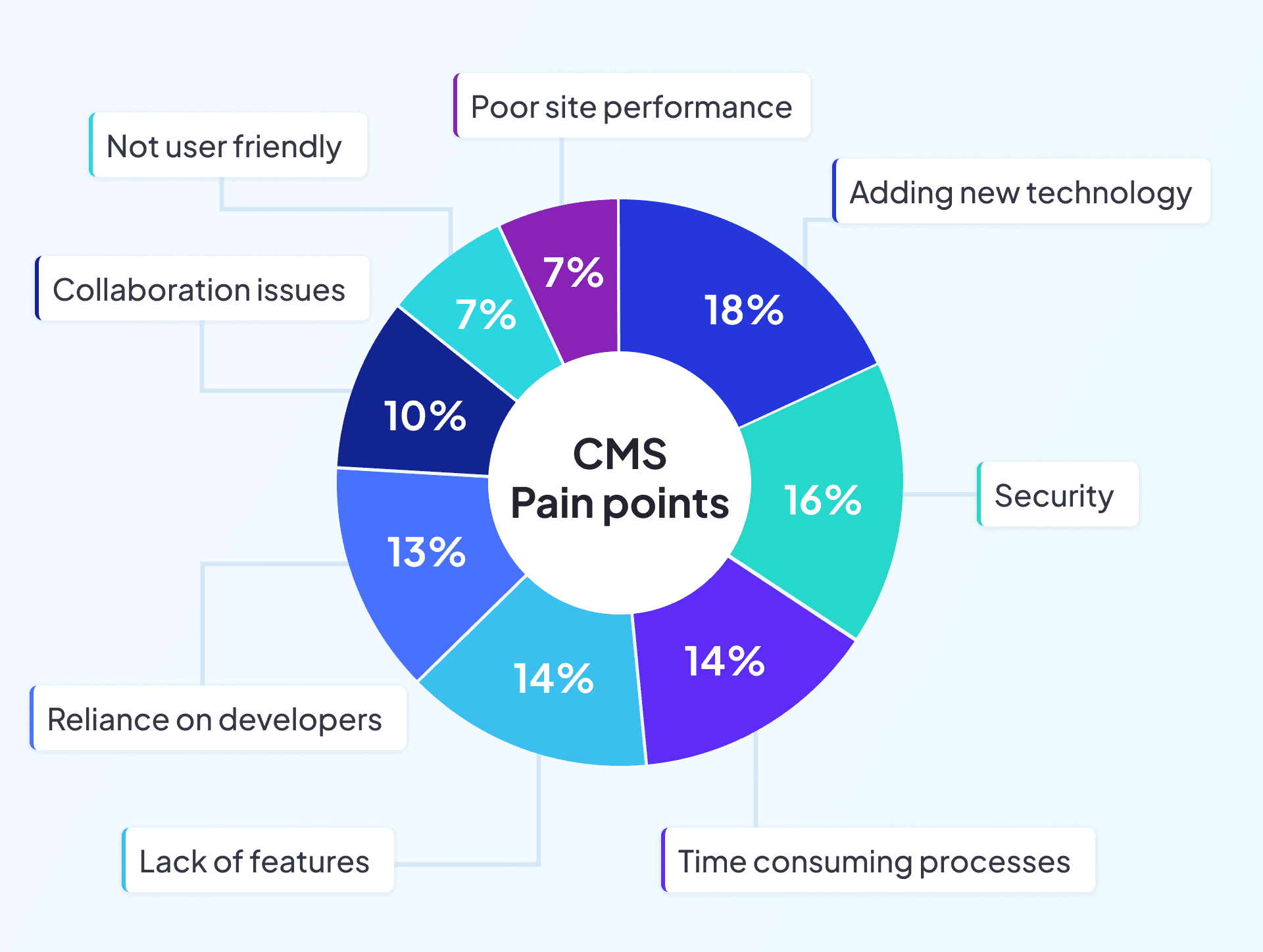
Storyblok
End users report a range of different issues with their CMS, with security and difficulty integrating new features or technology high in the list of pain points.
30,000 Wordpress websites are hacked every day
WP Mayor
With so many targets and a wealth of plugin vulnerabilities to exploit, it's not surprising that Wordpress websites are very commonly hacked.
This can mostly be mitigated by keeping your platform and plugins up to date, but with such a huge number of websites relying on Wordpress, it's bound to be the biggest target.
Slow websites cause retailers to lose $2.6 billion dollars a year
Forbes
One of the most common complaints about websites is about speed. Users are highly likely to abandon a slow website, and many CMS platforms are notorious for being slow loading.
This is often down to what's called "bloat". A system like Wordpress has thousands of different available functions, all of which require code in the CMS - even if your website isn't making use of the feature itself.
All of this code needs loading whenever someone uses your webpage, which can slow it down dramatically.
Speed is one of the big reasons that more websites are moving from a "monolithic" CMS, to a "headless" CMS.
88.5% of mobile visitors will leave a slow loading website
Hostinger
Issues with slow loading pages are even more dramatic when you consider mobile usage, with users exhibiting much less patience.
The rise of headless CMS
One of the biggest changes in the CMS market over the last few years has been the number of websites moving from a "monolithic" to a "headless" CMS.
A monolithic CMS is one which essentially loads up all its elements as the front end of the website loads, whereas a headless CMS keeps the CMS and the front end of the website separate, so users aren't having to load up all the CMS code every time they access a webpage.
As well as these two types of CMS, you also have web builder software, which is essentially website creation software and a CMS all in one.
It's important to note that while most CMSs are set up in one of these specific ways, some providers can be flexible. For example, Wordpress can be used as a web builder, a monolithic CMS, or can be decoupled to provide a headless CMS.
One of the big drivers behind the move towards headless has been issues with pagespeed. Not only is this an annoyance to users, it's also a problem for your organic SEO, as Google doesn't look kindly on slow loading pages.
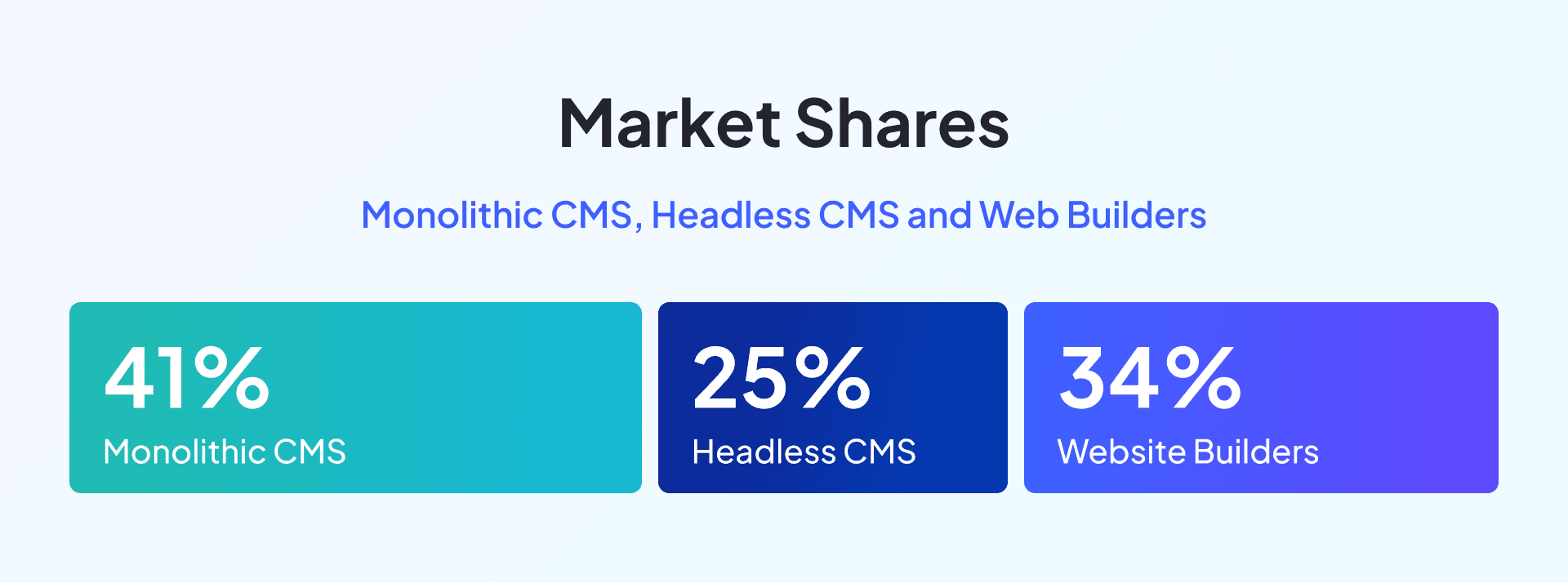
While monolithic CMSs still make up the majority of the market, headless CMSs are becoming more and more popular.
17% find the biggest plus of using a headless CMS is ROI
StoryBlok
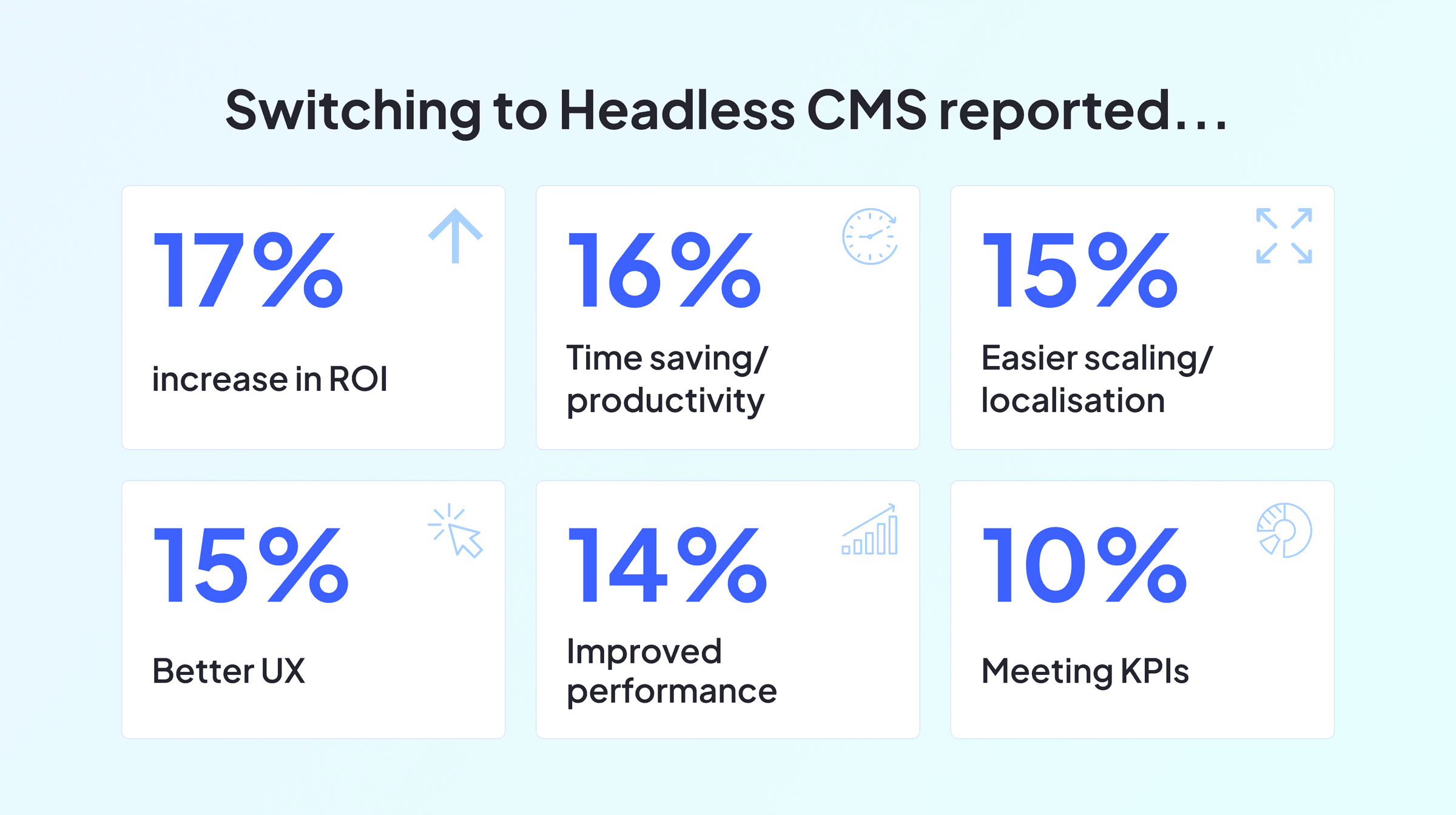
In this research from StoryBlok, not only did they discover a range of benefits for clients, only 2 respondents (less than 0.25% of the sample) did not report improvements.
The biggest barriers to choosing a headless CMS are cost, complexity and lack of understanding of the technology
StoryBlok
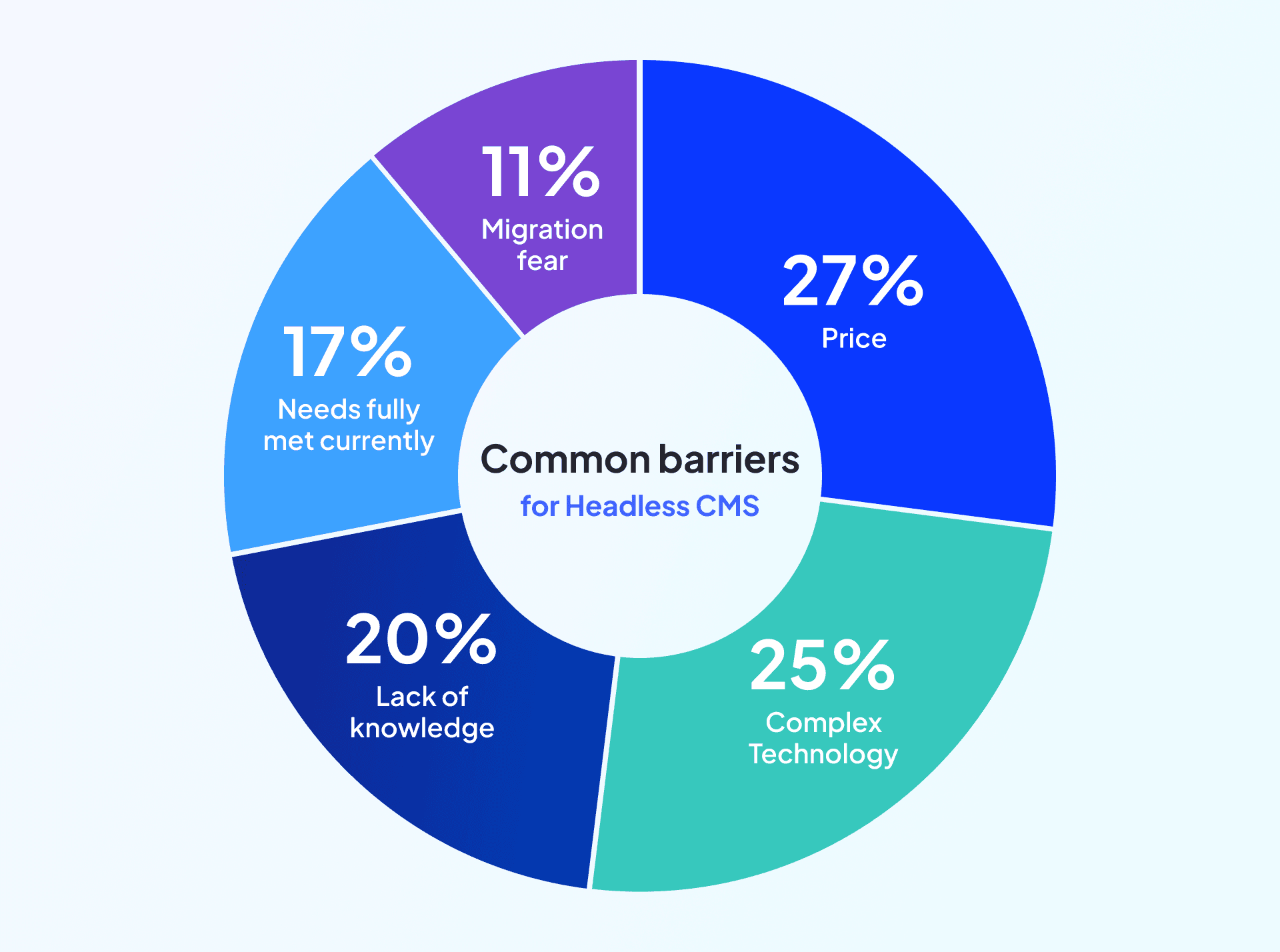
Despite ROI being reported as the biggest plus of using a headless CMS, the cost of implementation is a significant barrier to uptake.
The other issues most commonly raised are the complex technology and the lack of knowledge - which may be fairly closely related, as a lack of understanding of the technology could lead someone to believe it's complex.
How businesses choose a new CMS
With all the different types and variations of CMS, choosing the right one for your unique needs can be difficult. However, the majority of people choose their system based on recommendations, and rarely consider more than 4 different options before making their choice.
71% of people looking for a new CMS considered 4 or fewer platforms
Content Science
With so many different options out there, it's surprising that the vast majority of people consider 4 or fewer CMSs before making their choice.
53% of people have no familiarity with headless CMS
StoryBlok
Headless is one of the trending options for content management, but more than 50% of people don't have any familiarity with it, which could be a significant barrier to uptake.
92% of people report that keeping content and data consistent is a challenge
Hygraph
Most people struggle keeping content streamlined across platforms, which can become more complex if you are using multiple CMSs, or have a CMS that can't fully manage your content requirements.
69% of people choose their CMS based on recommendations
Content Science
Almost 70% of people select their CMS based on recommendations, indicating that people don't have a good understanding of what different CMSs can offer or provide.
How to choose the right CMS for your business
The statistics show us that many businesses choose their content management software based on familiarity with the system, or based on recommendations from others - which makes the fact that Wordpress is such a dominant player more understandable!
But the right CMS can be a big factor in your online success, and help improve productivity, brand consistency and messaging, and even have a positive effect on your real world processes and systems.
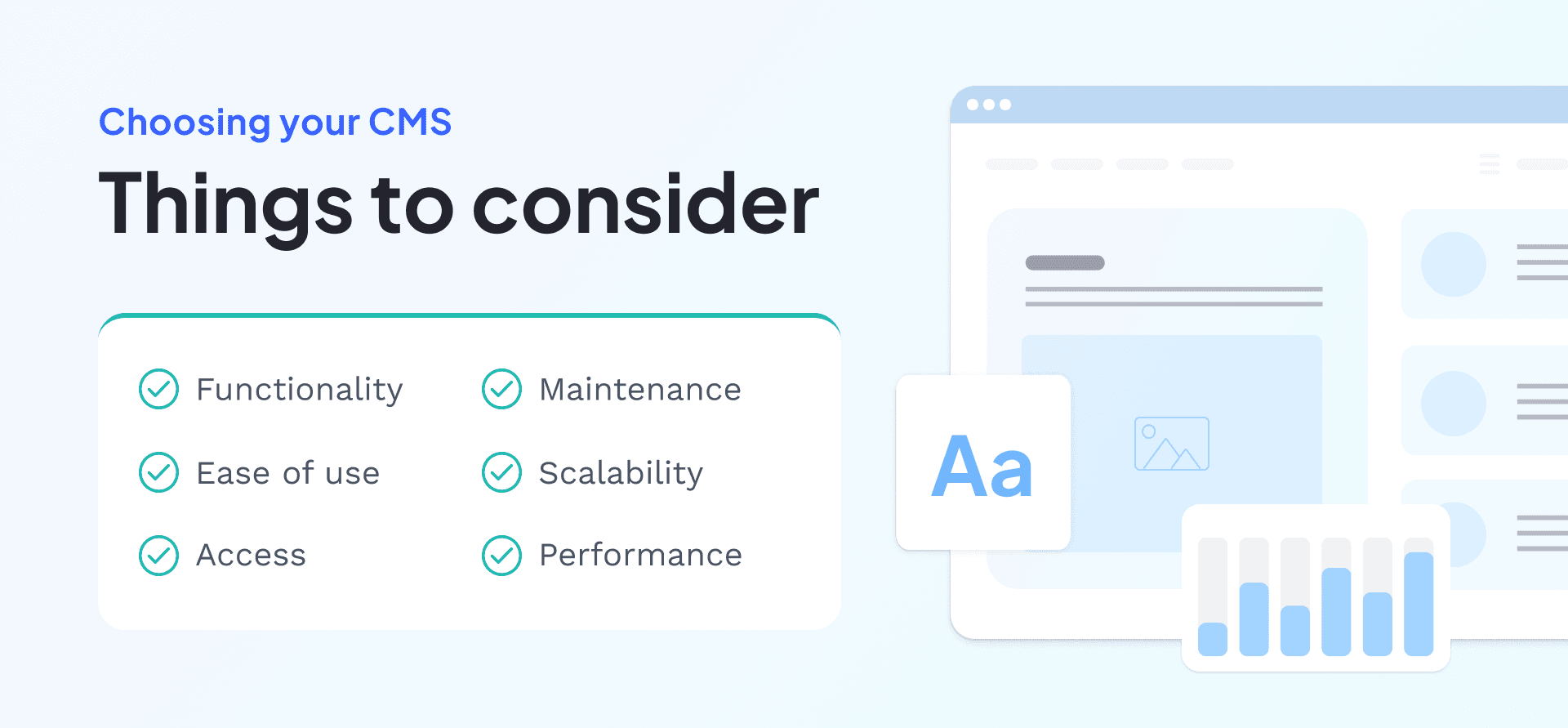
That's why you should look at more than just what's familiar and well-known for your CMS options, and find a solution that ticks the right boxes for you. You should consider:
- Functionality - can this system do everything you need, or will you need to fill gaps with plugins or other 3rd party systems?
- Ease of use - how simple is this CMS to learn? Many of the newer CMSs provide a really simple user experience, making onboarding much easier.
- Access - who needs access to this CMS, do they need different user levels?
- Maintenance - how much maintenance is required, and can you manage that in-house, or will you need an external partner? Most open source CMS platforms require more updates than bespoke systems, but bespoke platforms typically require maintenance from a developer.
- Scalability - will this CMS be able to support the website as it develops and grows? What are your future plans, and have these been factored into your decision.
- Performance - what effect will this CMS have on page speed and website performance?
Another significant consideration is who you work with to identify the correct CMS for your website.
It's very common for developers or agencies to specialise in one specific platform, which can sometimes lead to clients being pushed towards a CMS that might not actually be the optimal solution.
The best way to avoid this is to ensure you're working with a company with a wide range of CMS experience, who can talk you through your options, and help you select the best CMS for your business, based on your unique needs.
